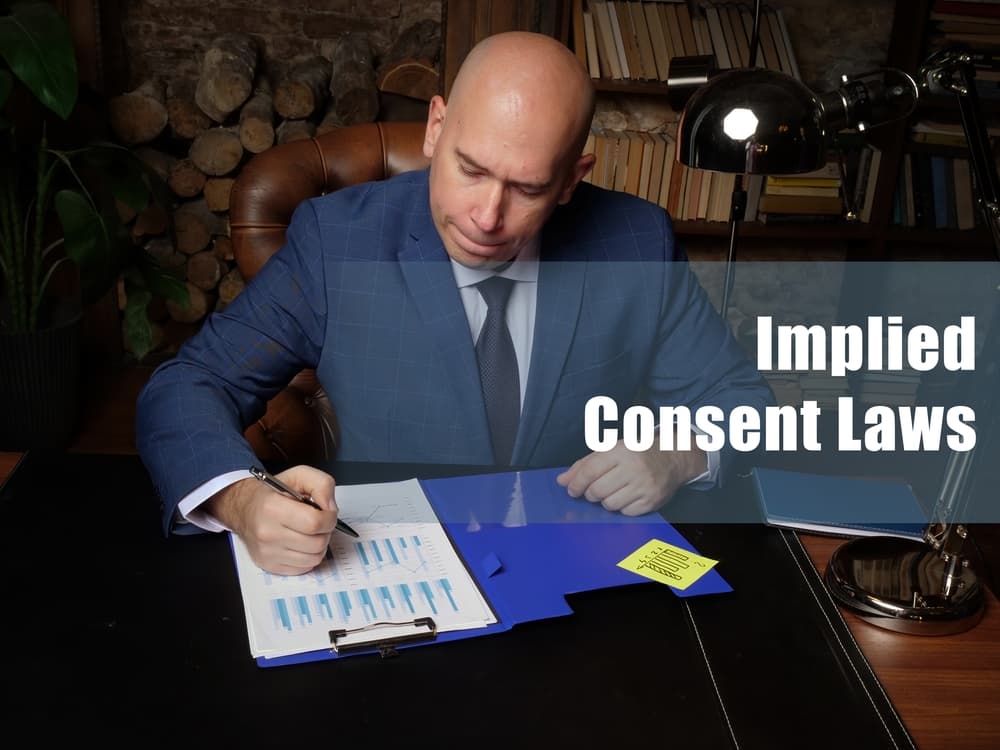When law enforcement pulls you over on suspicion of driving while intoxicated (DWI), they usually ask you to take a blood alcohol test. This test, administered through a Breathalyzer or blood draw, determines your blood alcohol concentration (BAC) level and whether you are over the legal limit for driving.
But what happens if you refuse to take a BAC test?
Improper calibration or other technical issues can lead to inaccurate results and wrongful charges. Additionally, individuals with certain medical conditions or those taking specific medications may worry that these factors could skew the test results.
Some might refuse the test to avoid providing confusing evidence that authorities could use against them in court, opting instead to rely on legal defense strategies to contest the charges.
An experienced Beaufort DWI lawyer is on your side for legal defense in the court of law.
Schedule Your Free Consultation
Implied Consent Laws

When you obtain a driver's license, you provide implied consent to to take a blood alcohol test if law enforcement requests it during a DWI stop.
Many people don’t know that you face penalties if you refuse to take the test, even if the court does not convict you of a DWI.
Administrative Penalties
The primary consequence of refusing a blood alcohol test is the automatic suspension of your driver's license. The length of the suspension starts at one year or more.
You have 30 minutes to contact counsel for legal advice and to choose a witness to observe the testing procedures. You cannot delay the testing for longer than 30 minutes from when police notify you of this right, regardless of whether you called an attorney, or your witness has arrived.
Regaining your driving privileges after a refusal suspension requires attending a hearing with your state's Department of Motor Vehicles (DMV), where you will present your case and argue against the suspension.
You must prove the officer did not have probable cause to request the test or that you had a valid reason for refusing.
Even if you win your DMV hearing, you may still face separate criminal and DWI charges that prosecutors file based on other evidence of impairment, such as field sobriety tests or officer observations.
Criminal Penalties
Refusing a blood alcohol test is a separate criminal offense from DWI. You can face fines, jail time, and additional license suspension or revocation if convicted of a refusal. The court increases these penalties if you have prior DWI convictions or refusal charges.
Prosecutors may use a refusal as evidence against you in a DWI trial. They may argue that it shows consciousness of guilt. This can make it more difficult to defend against the DWI charge, even with limited evidence against you.
Exceptions to Implied Consent

If a medical condition makes it dangerous to provide breath or blood samples, you may refuse a blood alcohol test without facing administrative or criminal penalties. The officer may excuse you from the test.
If the officer does not have probable cause to suspect you of DWI, you may be able to challenge the validity of the request. These narrow exceptions require an experienced DWI lawyer to prove.
Legal professionals generally advise complying with the officer's request for a blood alcohol test, even if you believe you are not impaired. Refusing the test will not prevent the officer from arresting you for DWI and may make your situation more challenging.
If you have concerns about taking a blood alcohol test or believe that the officer did not have probable cause to request the test, speak with an experienced DWI attorney as soon as possible.
If you refused a blood alcohol concentration (BAC) test during a DWI stop, consult an experienced DWI attorney.
Why Do You Need a Lawyer After Refusing a DWI Test?
Legal representation provides several benefits and protects your rights after refusing a BAC test, including:
- Administrative hearing: Refusing a BAC test automatically suspends your license. An attorney can represent you at the DMV hearing, present evidence, and argue against the suspension.
- Criminal charges: Refusing a BAC test is often a separate criminal offense from DWI. An attorney explains the potential penalties, develops a defense strategy, and negotiates with prosecutors to reduce or dismiss the charges.
- DWI charges: Even if you refuse a BAC test, prosecutors can still charge you with DWI based on other evidence. An attorney can review the evidence against you, challenge its admissibility in court, identify weaknesses in the prosecution's case, and work to reduce or dismiss the charges.
- Legal experience: DWI laws are complex. An experienced DWI attorney thoroughly understands the applicable laws and can use this knowledge to build a strong defense. They advise you on the potential consequences of a refusal or DWI conviction and help you make informed decisions.
- Protecting your rights: Law enforcement officers must follow specific procedures when requesting a BAC test and making a DWI arrest. If officers violated your rights, an attorney identifies these violations and uses them to challenge the evidence against you.
Not having legal representation costs much more than hiring a lawyer after refusing a BAC test. The price of not hiring a lawyer includes increased insurance rates, alternative transportation costs, court costs, employment issues, and lost wages.
If you refused a BAC test during a DWI stop, consult an experienced DWI attorney as soon as possible. An attorney can protect your rights, challenge the evidence against you, and work to minimize the consequences of a refusal or DWI charge.
An attorney can help you understand your rights and options and minimize the consequences of a refusal or DWI charge.
Decide to refuse a blood alcohol test carefully and with a full understanding of the potential risks and benefits.
Knowing your rights and seeking the advice of legal counsel can help you make an informed decision that protects your interests and minimizes the impact of a DWI stop on your life.
Criminal defense attorneys at Cummings & Kennedy Law Firm offers a free, private consultation to explain your options.